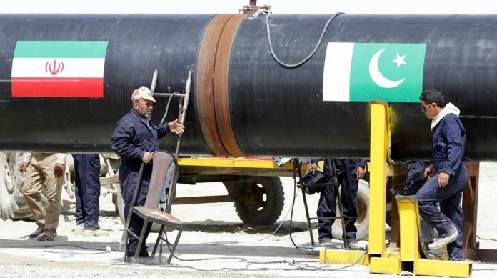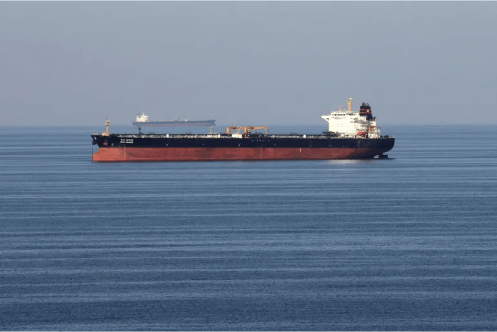In a world where energy security stands as a linchpin of progress and prosperity, Pakistan’s decision to halt the ambitious Iran-Pakistan Gas Pipeline Project has ignited a discourse that intertwines economic aspirations, diplomatic maneuvers, and strategic intricacies. The complexities inherent in this choice reverberate beyond mere energy dynamics, encompassing a plethora of benefits and challenges that must be meticulously weighed. As the globe treads the precipice of an energy crisis, Pakistan’s stance on this critical juncture echoes far beyond its borders, reaching into the very heart of Pakistan’s global standing.
Economic, Diplomatic, and Strategic Implications
Abandoning the project would force Pakistan to forego a multifaceted array of benefits. Economically, the pipeline offered a lifeline to resuscitate Pakistan’s energy-starved economy, stimulating industrial growth and catalyzing job creation. The tantalizing promise of alleviating energy scarcity, akin to a silver bullet, would have paved a path to economic resurgence and diplomatic clout. Geopolitically, the project positioned Pakistan as a regional powerhouse, a cornerstone of connectivity, and a strategic pivot.
Yet, relinquishing this endeavor carries diplomatic implications that extend beyond Iran-Pakistan relations. The project’s abandonment may tarnish Pakistan’s image as a reliable partner, potentially deterring future collaborations. Furthermore, it sends a resounding geopolitical message about Pakistan’s willingness to yield to external pressures, risking erosion of its sovereignty. The decision entails a delicate balancing act, where the interplay of national interests and international dynamics shapes Pakistan’s strategic trajectory.
Possible Challenges at the International Court of Justice
The specter of legal challenges looms large for Pakistan, echoing the Reko Diq saga where Pakistan narrowly averted a USD 11 billion penalty. The stipulated deadline for constructing a section of the IP gasline within Pakistan’s territory poses a daunting challenge. Failing to meet this deadline could trigger a substantial USD 18 billion penalty, casting a shadow on Pakistan’s financial stability. The reference to the Reko Diq case highlights the potential repercussions of such penalties, underscoring the importance of diplomatic and legal acumen in navigating international disputes.
Mitigating Energy Crisis and Global Turmoil
In a world grappling with energy shortages and soaring prices, Pakistan’s withdrawal from the gas pipeline project could exacerbate its own energy crisis. The Russia-Ukraine conflict stands as a stark reminder of how disruptions in energy supplies can reverberate across the globe, amplifying volatility in energy markets. To shield itself from such repercussions and the public backlash stemming from increased energy prices, Pakistan should strive to diversify its energy sources and strengthen its energy security.
Learning from the Enemy in the East and Improvising
Amidst a backdrop of sanctions, India adeptly navigated global pressure while engaging with Iran for energy procurement. By fostering strategic ties and prioritizing energy security, India managed to negotiate favorable terms, secure exemptions, and establish flexible payment mechanisms. Pakistan can draw vital lessons from India’s pragmatic approach: diversify partnerships, invest in effective diplomacy, and align energy procurement strategies with national interests. Emulating India’s success in sustaining ties with Iran amid sanctions could offer Pakistan a blueprint for mitigating diplomatic challenges.
The Iran-Pakistan Gas Pipeline Project’s abandonment represents a crossroads that transcends energy transfer. It embodies an intricate web of economic, diplomatic, and strategic considerations, echoing the age-old proverb “A stitch in time saves nine.” Pakistan must weigh the allure of economic revitalization against the risk of ceding diplomatic autonomy, echoing the wisdom of “Look before you leap.” The urgency to mitigate an impending energy crisis and navigate a volatile world underscores the need for prudent decision-making, encapsulated in the adage “Forewarned is forearmed.”
As the world teeters on the brink of energy scarcity, Pakistan’s choice will reverberate for years to come. It must rise to the occasion, channeling the resilience captured in the quote “Necessity is the mother of invention.” Through strategic diplomacy, calculated maneuvers, and pragmatic collaboration, Pakistan can transcend the challenges posed by international pressures and embark on a path that ensures energy security, economic resurgence, and diplomatic ascendancy. In these testing times, Pakistan’s resolve to secure its energy future becomes not only a matter of policy but a beacon of resilience, “When the going gets tough, the tough get going.”







